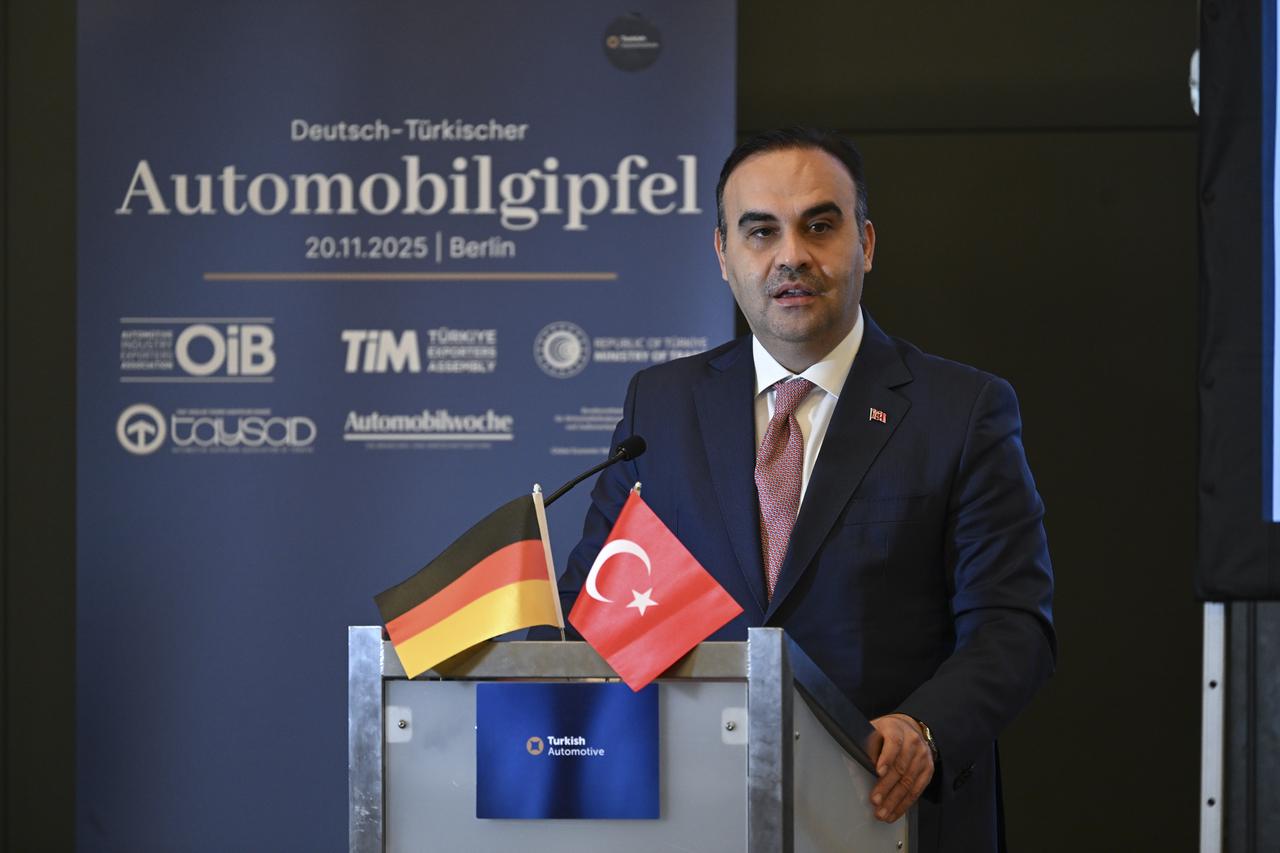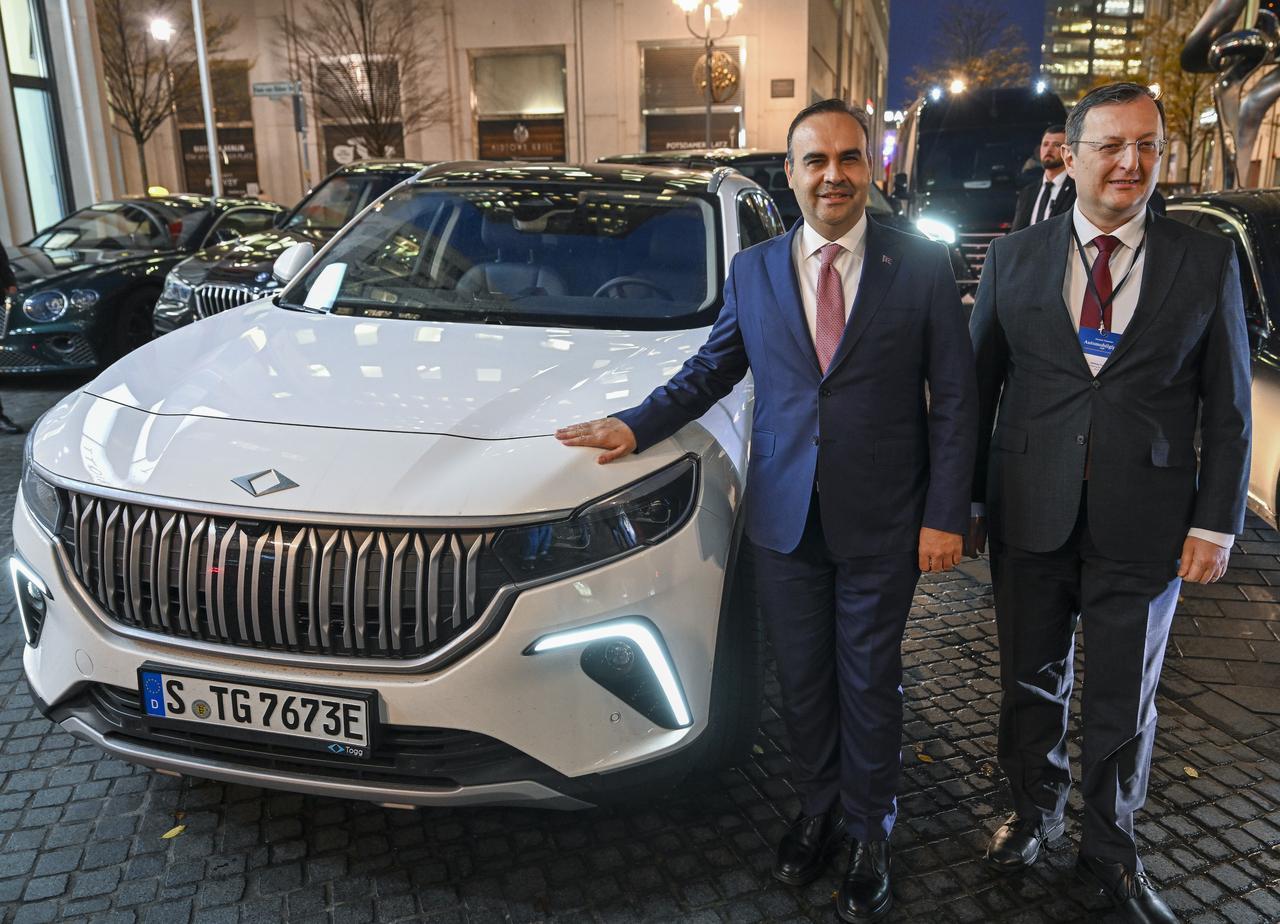
Türkiye’s Industry and Technology Minister Mehmet Fatih Kacir invited German automakers to expand their investments in Türkiye on Thursday, emphasizing the country’s industrial capacity, stable investment environment, and skilled labor force.
Speaking at the 2025 German-Turkish Automotive Summit in Berlin, Kacir described Türkiye as a 'reliable, competitive, and long-term partner' for Germany’s evolving automotive needs, particularly amid the global shift toward electric and connected vehicles, and called on German firms to engage in the rising mobility ecosystem centered in Türkiye.
"The strong and historical partnership between Türkiye and Germany offers a unique opportunity to turn global changes into shared success," Kacir said, highlighting the importance of bilateral cooperation amid the geopolitical and economic shifts reshaping global manufacturing and supply chains.
Kacir noted that over 8,000 German-capitalized firms are currently operating in Türkiye, praising their contributions to local production, exports, and employment.
"These companies created value in Türkiye and benefited from it in return," Kacir stated. Conversely, he praised the impact of Turkish entrepreneurs in Germany, citing more than 80,000 Turkish-founded companies with a combined annual turnover exceeding $50 billion.
Kacir underlined that Türkiye's automotive sector plays a key role in its economic trajectory, indicating that the country has increased its industrial output three to fourfold in the last two decades and raised goods exports from $36 billion to $270 billion.
“Türkiye is now one of the world’s leading production hubs—not only in its region, but globally,” Kacir said, pointing to sector-wide figures. The country has an annual production capacity of 2.2 million vehicles and is Europe's top producer of commercial vehicles and buses, ranking fourth overall in automotive production. In 2024, the sector posted a record $37.2 billion in exports, he noted.
According to Türkiye's Investment Office, global automotive brands have invested a total of $20 billion in Türkiye’s automotive industry since 2000.

Kacir said Türkiye's electric and connected vehicle brand, Togg, represents the country's ambition to lead in next-generation mobility technologies. "We never saw Togg as a brand solely for domestic demand," Kacir said. "It is positioned to be preferred in Europe's most advanced markets for its technology and quality."
Togg, Türkiye's domestic electric vehicle manufacturer, which debuted in 2023, recently entered the European market with its launch in Germany in September at the IAA Mobility 2025 fair in Munich, one of Europe’s largest automotive events.
He noted that falling battery costs and the European Green Deal are accelerating the shift toward electric vehicles, adding that Türkiye aims to play a pivotal role in this transition with its robust R&D ecosystem and production infrastructure.
The minister also remarked that Türkiye has expanded its EV charging infrastructure to 36,000 connection points, stressing that current investments by automakers in hybrid and electric vehicle production confirm the country’s growing role in global mobility.
Kacir emphasized Türkiye's strategic location, access to a 1 billion population via free trade agreements and the EU Customs Union, and logistics infrastructure including roads, ports, railways, and air cargo.
"Türkiye and Germany will emerge stronger if they act together. We will achieve more, together," he stated.